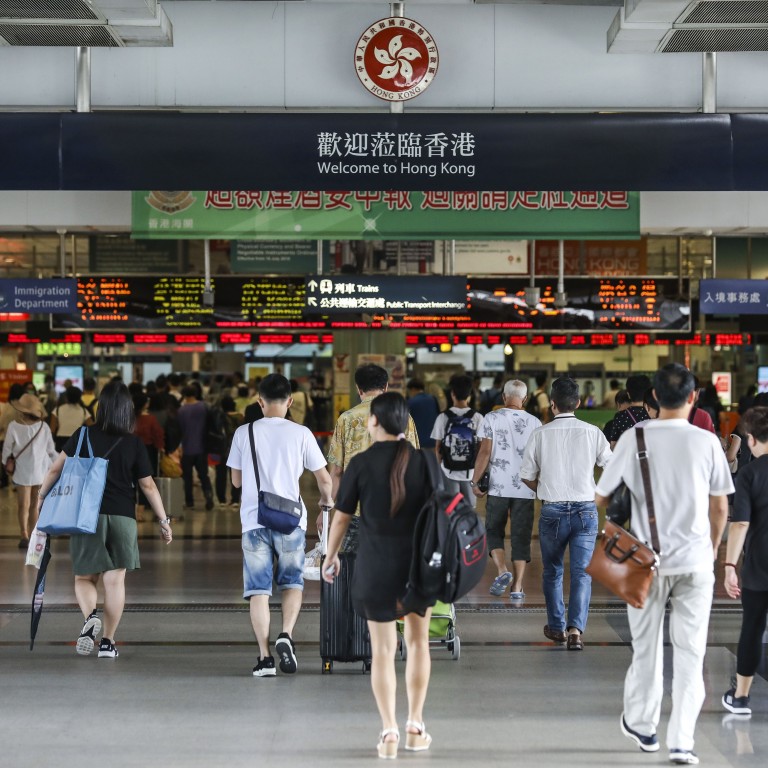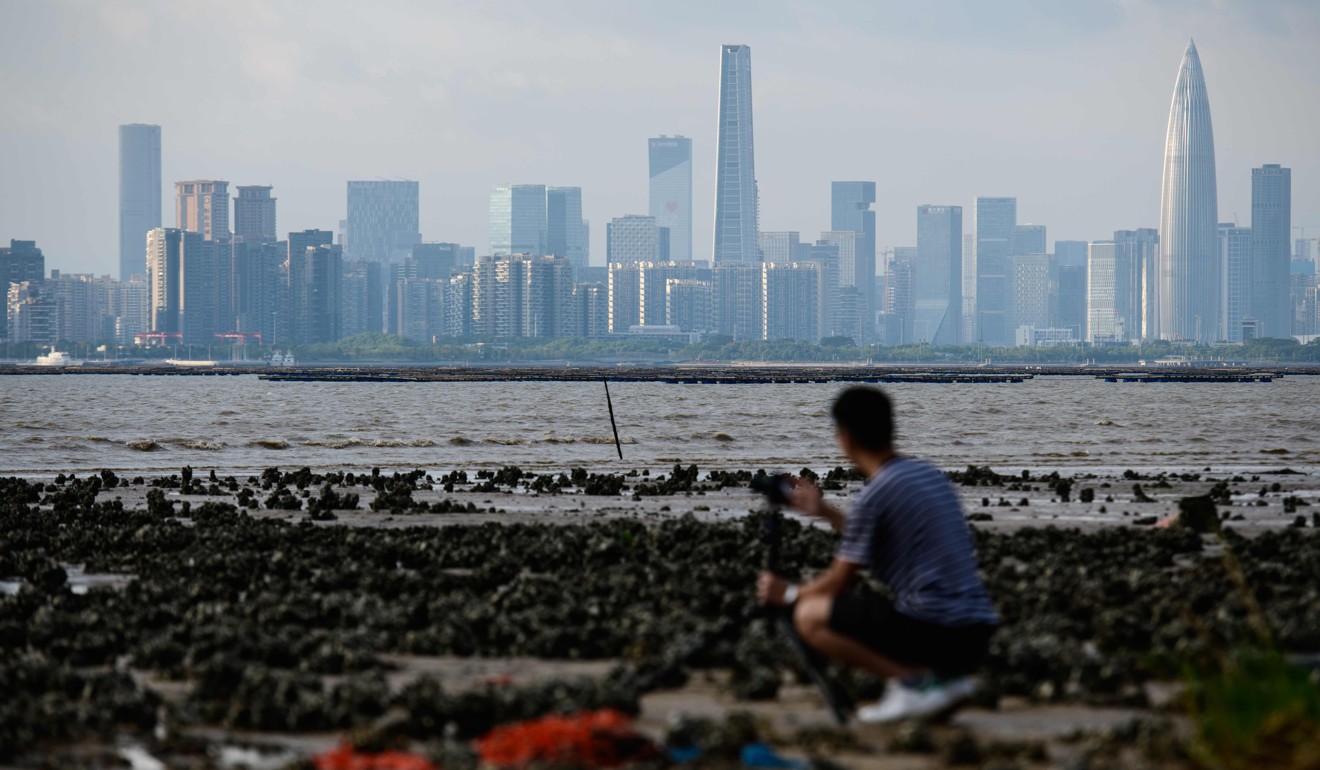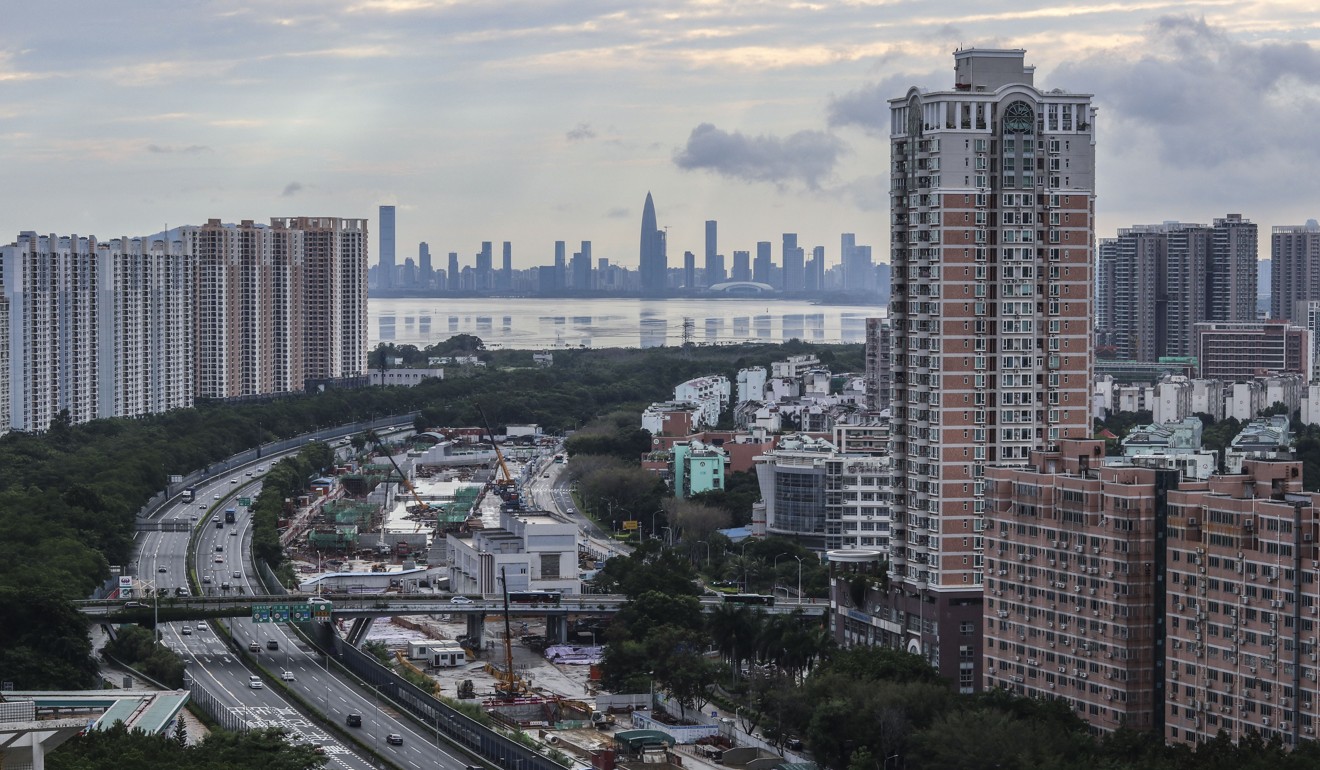
Bigger tax break offered for Hongkongers working in mainland China as Beijing seeks talent for Greater Bay Area project
- Arrangement is more generous than expected as authorities try to woo talent from Hong Kong, Macau, Taiwan and abroad
Beijing has revealed a more lenient tax exemption for Hongkongers working in mainland China, offering six years without charge on income from outside the country – up from the previous five.
But taxpayers will need to spend 30 consecutive days in those six years outside the mainland to qualify for the concession.
The arrangement was announced by authorities on Saturday and is a more generous offer than expected as Beijing tries to woo talent from Hong Kong, Macau, Taiwan and abroad.
Finance and tax officials also said a special subsidy would be offered to “high-end and urgently needed talent” working in nine Guangdong cities included in southern China’s “Greater Bay Area” project. The aim is to keep income tax as low as Hong Kong levels for imported workers. The levy in Hong Kong is capped at 17 per cent.

The bay area plan seeks to pool the strengths of Hong Kong, Macau and Guangdong to create an innovation and technology-led region that can compete on the global stage.
The string of tax favours from the Ministry of Finance and the State Administration of Taxation lives up to a pledge made two weeks ago by Hong Kong leader Carrie Lam Cheng Yuet-ngor, who said Beijing had decided to offer further relief from the mainland’s new personal income tax law.
Why Hong Kong and Singapore should tax wealth more
The legislation took effect at the beginning of 2019 and said workers from outside the mainland would be treated as tax residents and required to pay tax on any earnings coming from elsewhere in the world. The tax resident status would kick in if these workers had a home on the mainland or spent more than 183 days a year there.

But implementation guidelines said the levy could be avoided by leaving the country for more than 30 consecutive days every five years. That has now been raised to six. However, mainland homeowners will not qualify for the six-year exemption.
Another way to avoid the tax on global income is to spend more than 183 days of a single year in the six outside the country.
A day outside the mainland will be classed as any in which less than 24 hours are spent inside its borders. That means any trip across mainland boundaries, no matter how short, will equal one day outside.
The special subsidy available to “high-end and urgently needed talent” in Guangdong will be offered up to 2023. It replaces similar tax rules in place for the last six years in the special economic zones of Qianhai and Hengqin.
The standards for talent recognition would be set by the Guangdong and Shenzhen governments.
Normal income tax rates on the mainland range from 3 per cent on the first 36,000 yuan (US$5,358) a year, to 45 per cent for anything exceeding 960,000 yuan.
Peter Kung Wing-tak, a Hong Kong member of China’s top political advisory body, the Chinese People’s Political Consultative Conference, welcomed the two new policies.
“Under the new criterion for length of residence, most Hongkongers working on the mainland will not have to worry about the global tax,” Kung said.
He noted that some homeowners might still be affected, including those who have established their families or retired across the border.
Owning a home, according to the law’s implementation guidelines, means “living habitually in [mainland] China due to household registration, family, economic interests”.
“The mainland authorities have yet to clarify if the comma in between the three conditions means ‘and’ or ‘or’,” Kung said. “If it means ‘or’, those who have families or who are retirees in mainland China may still be subject to tax on global income.”
Why the Greater Bay Area hard sell won’t work on young Hongkongers
Witman Hung Wai-man, principal liaison officer for Hong Kong in Shenzhen’s special economic zone Qianhai, said some 400 Hong Kong employees in the zone would continue to enjoy the tax subsidy after the new rule replaced the zone’s own regulation.
“They have all been recognised as high-end talent here,” Hung said. “In Qianhai, you are high-end talent if you are working above the level of general manager, or you are a professional.”
Hung also called on the Guangdong government to clarify the talent list.
“I haven’t seen a published set of standards from the Shenzhen government for recognising high-end talent,” Hung said.
“And for cities other than Guangzhou and Shenzhen, which set of standards should they follow?”
Albert Lam Chi-cheung, vice-president of the Hong Kong Professional (Beijing) Association, looked forward to the tax subsidy’s expansion from the bay area to major mainland cities like Shanghai and Beijing.
Lam, who has lived in Beijing for more than a decade, said: “Other than an exemption of tax on overseas income, we can enjoy a higher tax threshold and more deductible items when we are not recognised as tax residents on the mainland.”
A spokesman for Financial Services and the Treasury Bureau said the Hong Kong government welcomed the announcements and felt grateful to the central government.
“We will continue to actively liaise with the central government on taxation issues concerning Hong Kong people on the mainland to enhance talent flow … as well as economic development within the Greater Bay Area,” the spokesman said.
The government is hoping to amend a treaty with its mainland counterpart to avoid double taxation by the end of the year.

